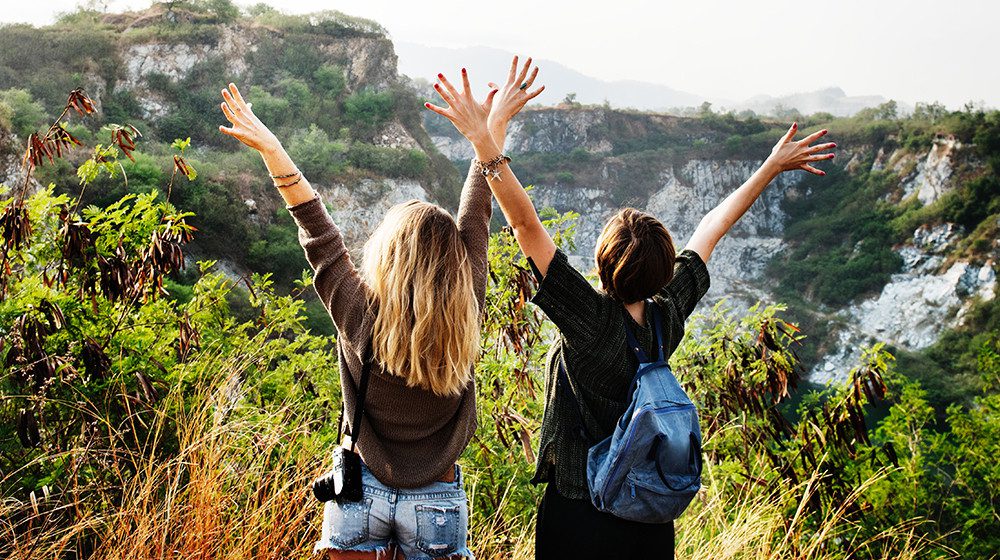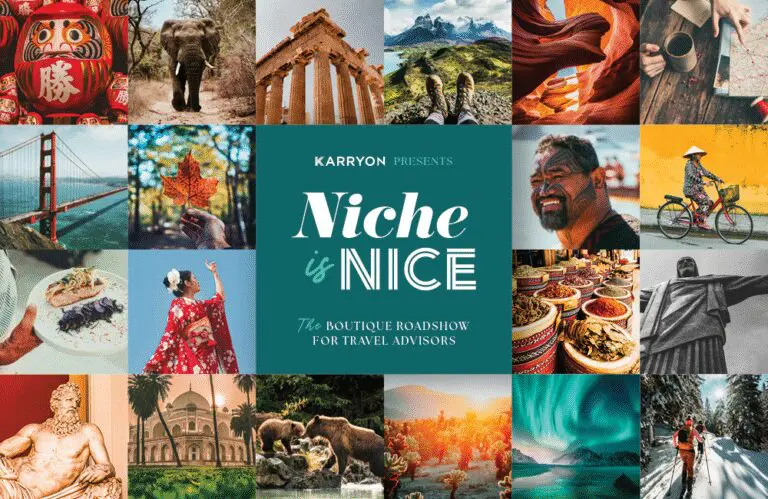Being an ethical traveller – sounds like it’d take a lot of effort to clean up your act & in turn, clean up the world. But surprise, it’s actually not that difficult.
In fact, teaching yourself to be a more ethical traveller is as easy as investing in a reusable bottle (which actually saves you money too BTW) and not throwing your trash on the floor.
Yep, that easy.
Start changing the way you travel and travel to change the world by making these few changes recommended by The Travel Corporation:
INVEST IN A REUSABLE WATER BOTTLE

Image: Martin Sanchez/Unsplash
While in theory plastic can be recycled, a massive 91 percent isn’t. It takes the material more than 400 years to degrade, so most is being dumped in landfills or ending up on beaches and parks. Investing in reusable water bottles will not only save you some pennies but will help with plastic consumption.
CARRY REUSABLE PRODUCTS WITH YOU

Image: Daiga Ellaby/Unsplash
Don’t just invest in a reusable water bottle. Purchase reusable utensils and your own mug for your local coffee shop trip. Not only will you be able to find a fun customised design, you’ll also be able to enjoy your daily latte while avoiding styrofoam usage (the plastic foam material that keeps you from burning your hand on your coffee).
PURCHASE AN ECO-FRIENDLY BAG

Say no to plastic bags and purchase an eco-friendly bag (or two) for your weekly shop. You can also buy some miniature cotton bags for packing your fruit and vegetables to avoid further plastic consumption.
INVEST IN DIGITAL

Image: Steve Harvey/Unsplash
Not only are digital versions of CDs and DVDs easier to transport on your travels and share with friends, but they are also a great way to help the environment. If you do have old plastic versions left over, you should make sure you recycle them or take them to your local thrift shop so others can use them too.
AVOID BATHROOM PRODUCTS THAT CONTAIN MICROPLASTIC PARTICLES

Image: Jonny Caspari/Unsplash
While California and the UK have banned microbeads in products, a number of countries worldwide still allow them to be included in products. Microbeads or microplastic particles can be ingested by marine life and can introduce pollutants into the food chain. They can be found in many exfoliants and shower gels.
DON’T LITTER

Image: Vova Drozdey/Unsplash
As much fun as picnics in the park are, it is vital you pick up after yourself. Even the smallest amount of rubbish can harm or kill native animals and wildlife.
REMOVE PACKAGING BEFORE YOU TRAVEL

Image: Jonathan Simcoe/Unsplash
The place you are travelling to might not have the same recycling facilities you have at home, and by taking sealed products with you, you may end up doing more harm than good. Remove the packaging on your toothbrush, the plastic around your soap and the plastic seal on your sunscreen before you head away to ensure as little waste as possible.
OPT FOR PETROLEUM FREE PRODUCTS

Image: Abigail Lynn/Unsplash
If you’re an active type, with a fondness for surfing, you’ll most probably be a sea life lover too. Take care of the creatures you’re encountering by using environmentally friendly products. Many, including surfer wax, are made with petroleum, which can pollute the ocean and cause harm to its sea life.
RESEARCH THE SUN CREAM YOU ARE USING

Image: Kori Nori/Unsplash
While it is vital to screen up on your holidays, many sunscreens are made up of oxybenzone, a common chemical that can kill coral and damage coral reefs. Opt for products without it to protect both sea life and your own skin.
CHOOSE A GOOD SNORKEL OR SCUBA DIVING COMPANY

If you’re interested in trying diving or snorkelling on your next trip, research the company first. Opt for one that doesn’t feed sea life. Fish wouldn’t normally eat the food you are giving them, but will if given it – they would usually eat algae instead. By feeding them you are increasing algae growth and potential harmful algae blooms, which can produce toxic or harmful effects on people, fish, shellfish, marine mammals and birds.
You should also be careful how you engage with sea life while snorkelling or diving. Starfish should not be handled or brought out of the water. Act as an inquisitive observer – sea life and wildlife should be left alone in their natural habitats.
- READ: Bali bans single-use plastics to reduce sea waste
- READ: Airline operates first single-use plastic-free flight
- READ: Tour operator stops printing travel brochures





